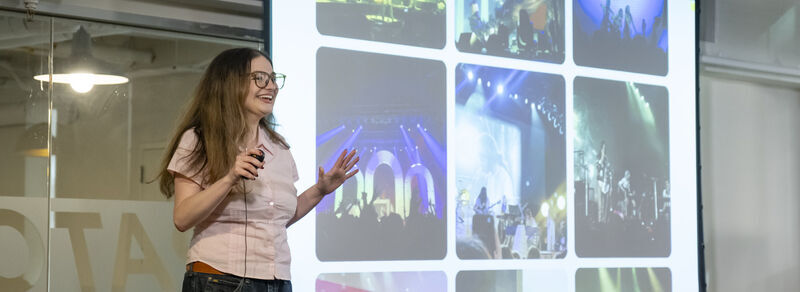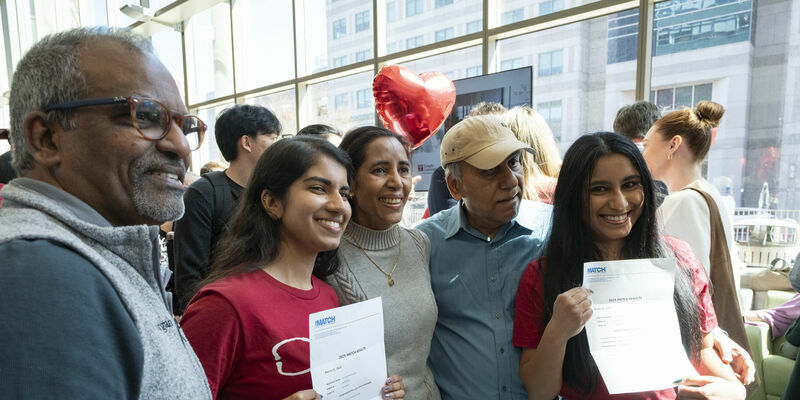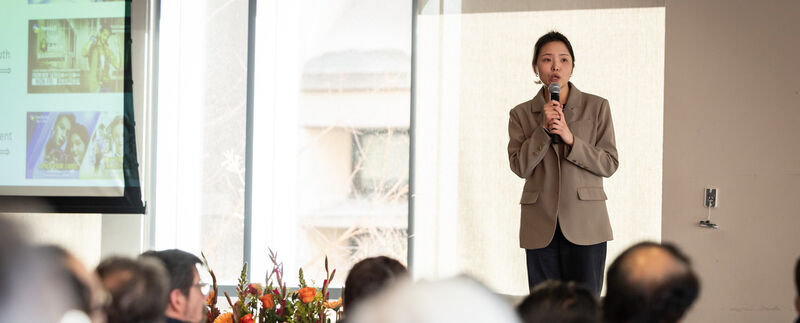Temple celebrates a historic trio of Goldwater Scholars in 2025
At the end of March, Timi Olofinyolemi, Ellie Han and David Palomino were named recipients of the 2025 Goldwater Scholarship, marking the first time three Temple students earned the prestigious scholarship in the same year.
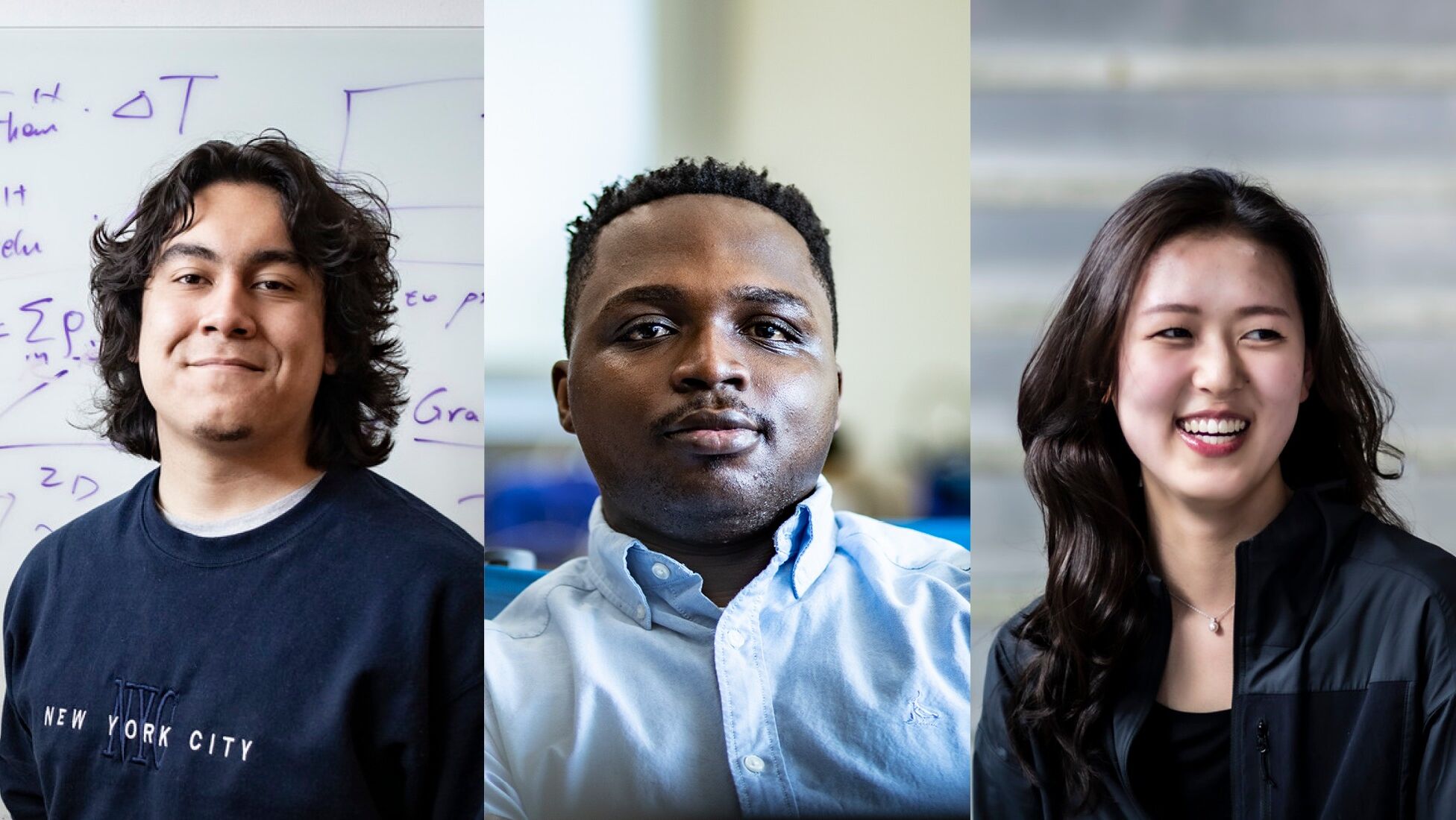
From quantum computing to black hole simulations, three Temple University students are pushing boundaries in STEM research—and now, they’ve earned one of the nation’s highest honors for undergraduate researchers, a Goldwater Scholarship.
Ellie Han and David Palomino from the College of Science and Technology and Timi Olofinyolemi from the College of Engineering are Temple’s 2025 Goldwater Scholars. Universities can nominate up to five students for the award each year, and 2025 is the first year that three Temple students were selected.
The prestigious scholarship is awarded to undergraduates in the natural sciences, engineering and mathematics who show exceptional promise as future researchers. Temple’s scholars are three of just 441 undergraduates across the country to earn a Goldwater in 2025.
“Each of our Goldwater Scholars this year has done something unique that highlights their potential as future leaders in STEM research,” said Barbara Gorka, director of fellowships advising at Temple. “They are all driven and motivated by scientific inquiry and exploration, and highlight that what students learn in the classroom can be applied in the lab and elsewhere to make a difference in the world.”
Get to know Temple’s 2025 Goldwater Scholars.
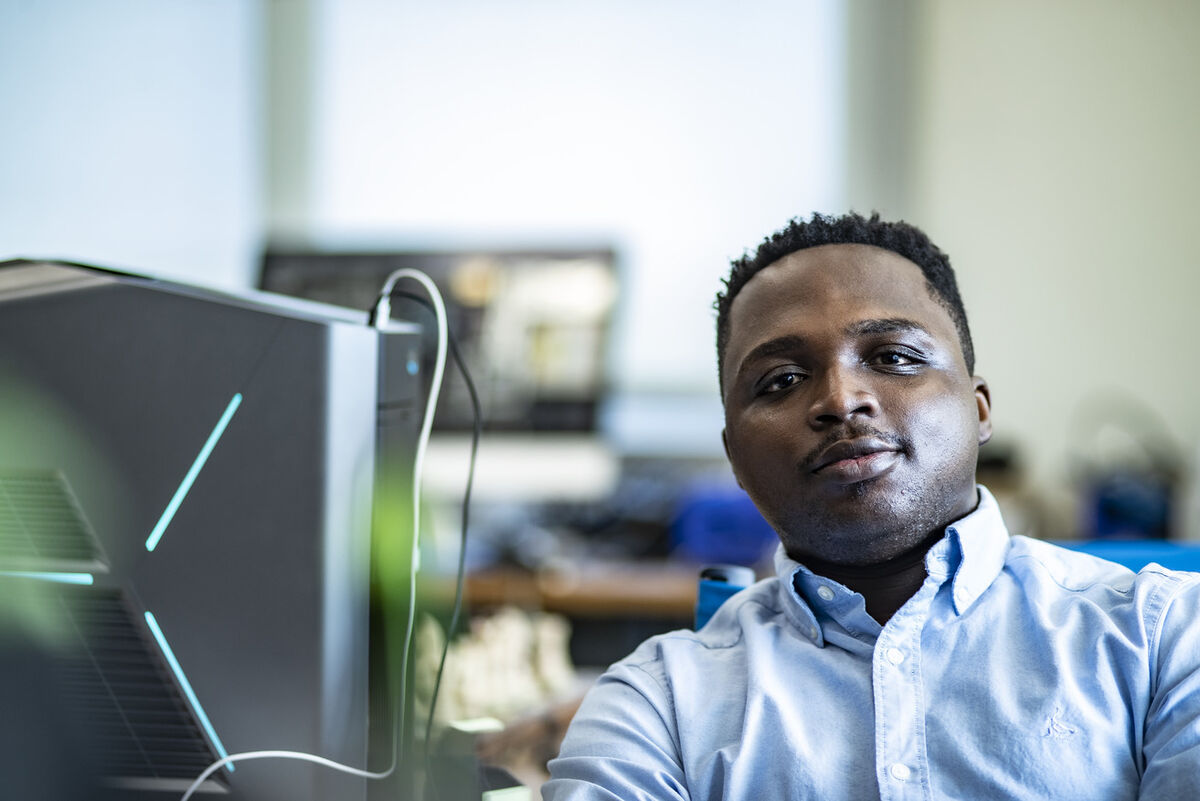
Timi Olofinyolemi
Major: Electrical and computer engineering
Graduating class: 2026
Hometown: Lagos, Nigeria
To put it simply, Timi Olofinyolemi wants to solve problems related to medicine.
“If I can do something related to engineering and medicine, I’m there,” he said. “Count me in. One thousand percent.”
Olofinyolemi was born in Nigeria and moved to Lansdowne, Pennsylvania, in 2021. He was first introduced to research while a student at Delaware County Community College, and he knew he wanted to continue exploring research opportunities when he transferred to Temple, especially those related to medicine.
“I’ve always had an affinity towards medicine,” he said. “When you are able to save an individual person, that’s the closest you can be to Superman. I have this deep appreciation for medicine and helping people find the latest medical achievements or medical solutions.”
As a sophomore, Olofinyolemi took an engineering analysis and applications class taught by Joseph Picone, professor of electrical and computer engineering, where he analyzed stock market data using machine learning principles.
“It was really interesting to me, because I felt like if we can apply these principles to financial data, we can apply them to medical data also,” Olofinyolemi said.
He then joined a research team led by Picone called the Neural Engineering and Data Consortium, where he managed a group of fellow undergraduate researchers who were annotating data related to pathology slides.
“To do this he had to learn a great deal about digital pathology including the basic science cellular biology,” Picone said. “He was an effective leader and received very positive reviews from his staff.”
Today, he’s part of a research team developing a robot that captures medical images using a technique called tactile sensor imaging. He hopes to work for the NIH someday, and with his Goldwater Scholarship, he feels like he’s off to a good start.
“This is a reminder that I can do anything I want to do, I just have to put in the work,” he said.
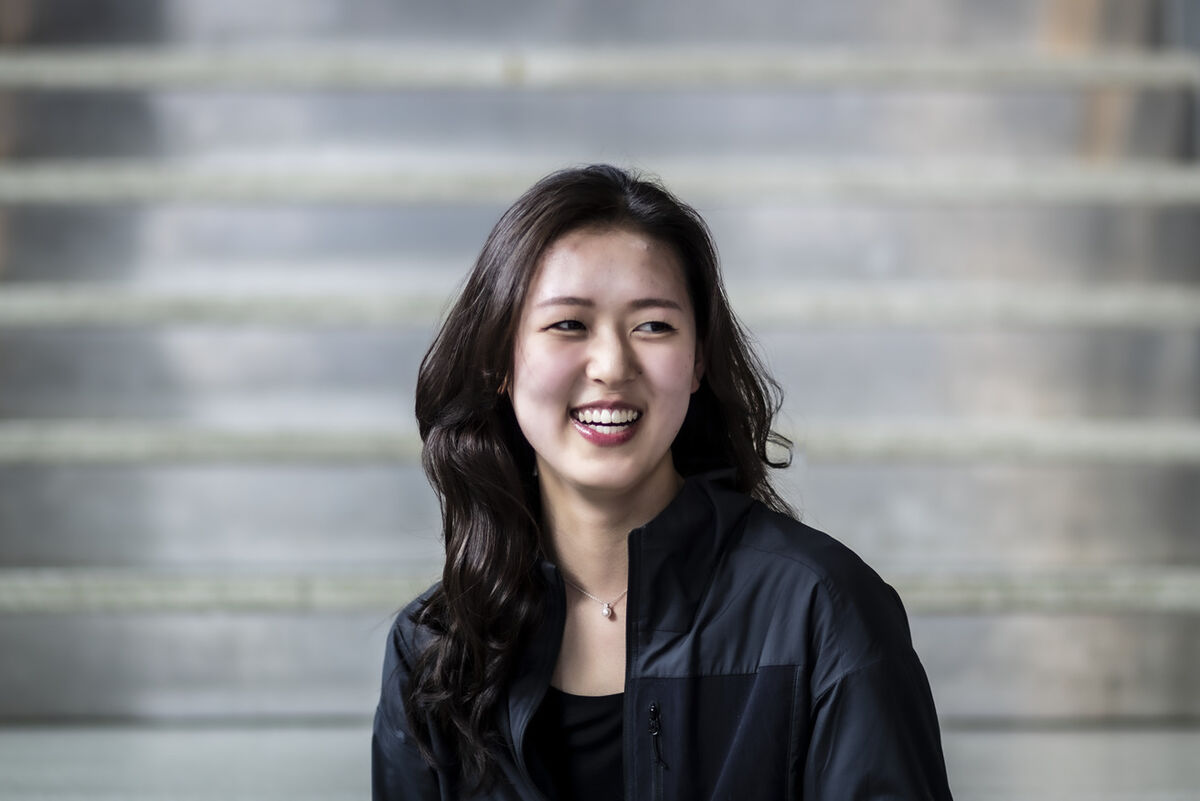
Ellie Han
Major: Computer science and physics
Graduating class: 2026
Hometown: Yardley, Pennsylvania
Honors Program student Ellie Han’s path to a computer science and physics major was a winding one. She tried out biology, then bioengineering, then biophysics, then physics, and along the way she dove into various research projects that helped her find her path.
She started in an experimental biology lab and later moved to a theoretical physics project, but it was a quantum computing algorithms project she conducted last summer at the University of Notre Dame that really clicked for her.
“That really changed the trajectory of my research interests, because it gave me the time and the space to delve into work that I hadn’t really thought of before,” she said.
Han explained that in the general field of quantum computing there’s a specific subsection called neutral atom quantum computing, and the team she joined at Notre Dame was trying to benchmark those systems. She contributed to their work by creating an algorithm that would solve an optimization problem to see what parameters are most important, how well the system can solve the problem and at what size.
“It’s important because we’re entering this new era of technology,” Han said. “There are many applications for quantum computing, so it’s exciting to see and work with some of their developmental roots.”
Han has enjoyed talking about her research at various symposiums and presentations, including at the Physics Department’s inaugural research symposium in August 2024, where she met Maria Iavarone, chair of Temple’s Physics Department. Iavarone was so impressed that she invited Han to join her experimental physics lab.
“In my years of mentoring undergraduate students, I have rarely encountered someone with her drive and potential—comparable only to a couple of my former students who have gone on to graduate programs at Stanford and Harvard,” Iavarone said.
Han is hoping to get into a PhD program in either applied physics or quantum science and engineering. Further down the road, she’s interested in doing some form of quantum hardware-software codesign.
“I’ve seen bits and pieces of it. I’ve done algorithm work, on the software end, and that introduced me to hardware more conceptually,” she said. “But being able to piece it all together and do something that combines hardware and software for some kind of hardware development would be really cool for me.”
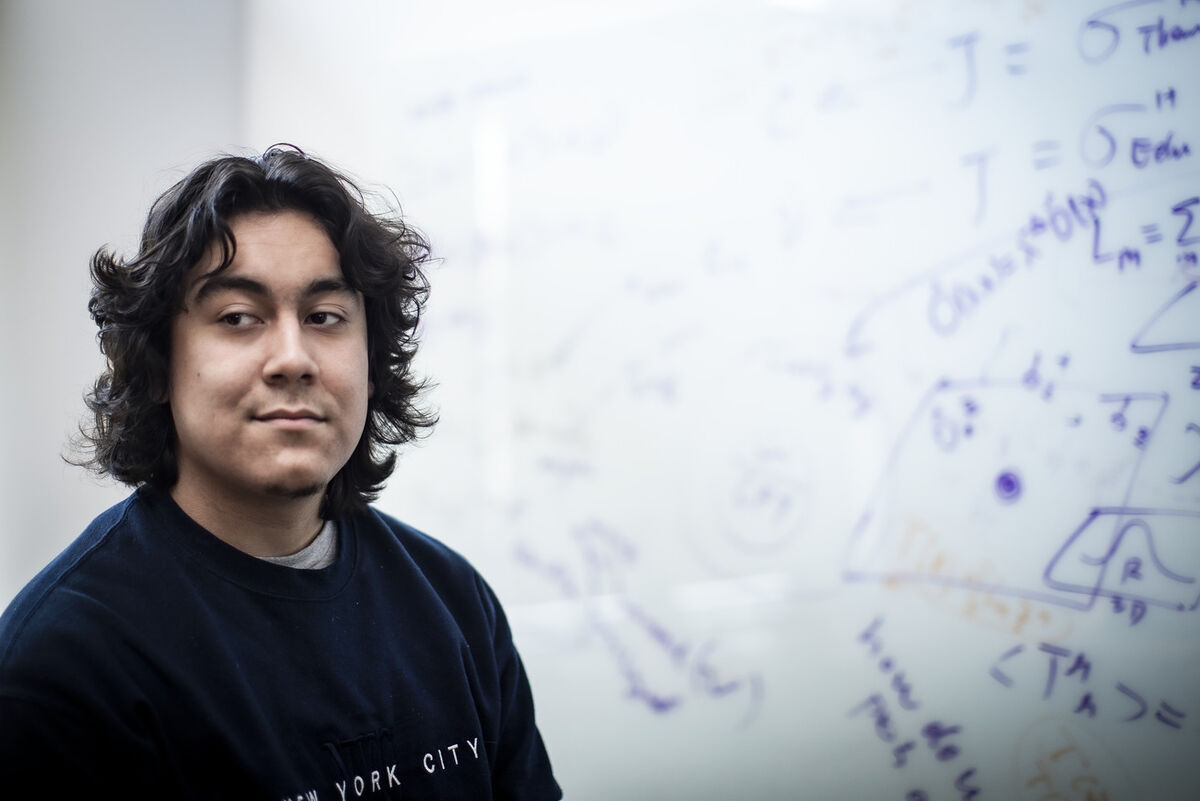
David Palomino
Majors: Computer science and physics; math
Graduating class: 2026
Hometown: Newtown Square, Pennsylvania
It didn’t take long for Honors Program student David Palomino to begin carving out his own, unique research path at Temple. By the spring of his first year, Palomino was working in a lab with Jim Napolitano, professor of physics, where he was conducting real-time simulations and visualizations of black holes.
“It was a very interesting experience for me because it wasn’t an existing project on a list of research groups at Temple,” Palomino said. “This was something that Professor Napolitano and I decided to do.”
Palomino has spent the two years since narrowing down his research interests and homing in on the work he’d like to do.
“I am very much interested in the intersection of topology, geometry and physics,” he said. “That is a fascinating area, but it’s also a very niche area, especially at the research level.”
Fortunately, Palomino crossed paths with Jie Wang, assistant professor of physics, who is leading research in that niche area. Palomino worked with Wang last summer on a research project focused on topological Chern band systems, a set of insulating materials that are effective against the natural elements.
“These are important at the industrial level, especially with regards computer manufacturing, where you need materials that are really good insulators under high stress and high heat,” Palomino said. “As energy inputs get higher and higher, or as we keep trying to fit more and more onto tiny computer chips, it’s important that we have good insulating materials.”
The research first involved extensive reading to get caught up on the latest work that was done on the topic. Palomino then leveraged his computer science background to code an application that could verify some of the theoretical results.
“David worked this project out very independently without much need of my guidance,” Wang said. “He has a strong background in mathematics and theoretical physics, and in many cases, it was me who consulted him for mathematics-related questions. I have to say I learned a lot from him.”
Palomino has continued to work alongside Wang, and he’s even been credited on one of Wang’s recent published research papers.
After graduation, Palomino intends to pursue a graduate degree in mathematical physics. He hopes to one day work as a research professor in academia.
“I would love to teach at the upper level and do research,” he said. “If that’s what I end up doing in the foreseeable future, I would be very happy there.”
The Goldwater Scholarship is administered at Temple through Scholar Development and Fellowships Advising. Rising sophomores and juniors involved with research and intending careers in STEM research are encouraged to connect with the office.
